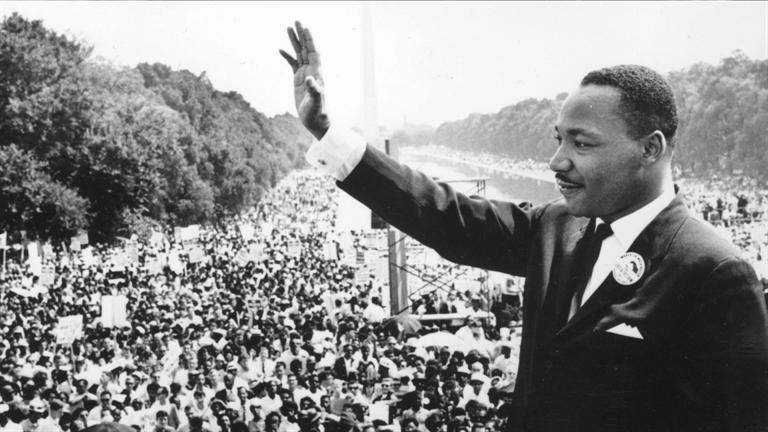Here at Best Delegate, we celebrate our differences. February is Black History Month in the United States and Canada. This article was inspired by Dr. Martin Luther King — an influential figure in the civil rights movement and American history.
“Yes, if you want to say that I was a drum major, say that I was a drum major for justice, say that I was a drum major for peace, I was a drum major for righteousness, and all the other shallow things will not matter” – Dr. Martin Luther King Junior

Dr King greeting supporters in Washington D.C.
What Makes a Leader Great?
Critical thinking, innovation, and cleverness are just few qualities seen in some of history’s most revered leaders. While doing Model United Nations can’t guarantee you a spot in the history books, it can help you cultivate some of the characteristics great leaders have. So what can we learn from the face of the American civil rights movement that will help make us become better leaders, not only in Model UN, but as global citizens?
Dr. Martin Luther King was at the helm of the battle against racial injustice in the America A battle which civilization has seen for generations and generations. His courageous attempt to abolish segregation and instill civil rights in the United States inspired future leaders around the world to continue the fight against racial injustice and discrimination.
1. Public Speaking:
One of MLK’s defining qualities was his public speaking skills. There is no other way to put it other than he excelled in speech delivery. Almost everyone recognizes the voice of Dr. King saying “I have a dream”. He’s known for his meaningful pauses and thoughtfully placed inflections. His public speaking style has been imitated by speakers around the world and, perhaps most famously, by U.S. President Barack Obama. MLK’s speech delivery skills made him stand out amongst other advocates.
2. Social Dynamics:
Besides his impressive public speaking skills, MLK knew how to work social dynamics. He often marched in small cities and rural towns, not just his attempt to reach out to smaller communities made others respect him even more. His grassroots efforts spread like wildfire; sit ins, marches, and boycotts sprung up in small towns across America after he participated or endorsed their cause in another town. He was inclusive, peaceful, and passionated, and while a lot of opponents of civil rights didn’t budge, even more were converted to supporters of the movement.
3. The Value of Personal Connection:
Dr. King made an effort to connect with everyone. Children, adults, seniors, black, white, male, female. He made people think, and moved debate forward in a constructive way. Dr King understood that giving key speeches were important, but it was just as important to build his support base from the ground up. He understood that sometimes in a smaller but more comfortable setting, he was really able to have genuine conversations. And although in a smaller setting there are less people to talk to, that meant an overall smaller supporter base. What really mattered to him were loyal followers, and the only way to get life-long loyal supporters is through intimate conversation, and the people genuinely appreciated how Dr. King took time out of his very busy schedule to visit them and share a genuine connection. One step at a time, when he got to Washington, ready for the speech that would change the course of American history, he would look into the crowd, and see a sea of people already hanging on to every word spoken, ready to support him, but more importantly to support the cause and the message he was spreading.
How these Help MUN Delegates:
Although it’s important to give influential speeches, you should never underestimate the power of genuine conversation. It’s almost always easier to lobby support for your cause from others in an intimate setting. In informal debate you have the opportunity to show sincerity, and in return people will be more emotionally invested in what you have to say, and as a result show you their unconditional loyalty. Unmoderated caucuses also give you a chance to directly speak with delegates who might not be active during regular debate. MLK’s speeches were inclusive, he didn’t write off certain groups tried to negotiate with all demographics. Similar in Model UN, you can categorize any given committee into 3 demographics (Enthusiasts, Moderately enthusiastic, Minimal enthusiasm) If you’re sociable enough to hit all 3 demographics, then you will have a significant hold of influence over your committee. More importantly, if they like you as person, they’re more likely to listen and respect you.
Check out this article to see what you can learn from another great leader:
Three Things We Can Learn From Nelson Mandela

